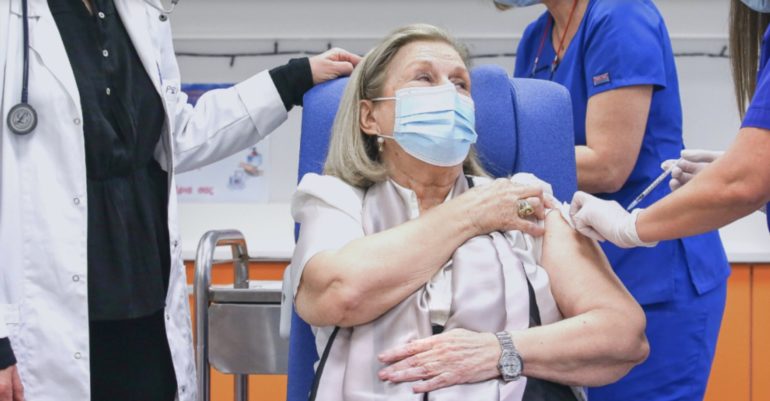A new study from Poland that evaluated data from 492 participants who identified themselves as hesitant or refused to be vaccinated concluded that those who were vaccinated against the new coronavirus general negative attitude towards vaccines.
The study was conducted by researchers at Jagiellonian University in Krakow and SWPS University in Wroclaw and published in the Social Psychological Bulletin.
The views of the people were sampled in the context of a conference where those opposed to vaccination presented their positions. Although they often reported that their views stemmed from their own personal negative experiences with the vaccine, when asked to develop their reasoning it was quite vague.
Many reported that they could not remember the source of their information, while others attributed autism, allergies or childhood diseases to vaccines, despite the lack of evidence of such a correlation.
These incidents are interpreted on its basis human innate tendency to retain what negative he saw or read, even fleeting on the internet.
The researchers explain that deniers tend to choose information that substantially confirms their prejudices, avoiding information that is indicative of alternative views and interpretations.
Thus a pre-existing negative attitude towards vaccines leads individuals to interpret negative symptoms as a consequence of vaccines further reinforcing their negative attitude.
The research team also recalls that when given similar information from multiple sources, people tend to forget the original source of the information, often confusing it with their own experience or that of people close to them. Then they turn once again to a new source of (mis) information.
In conclusion, vaccine deniers believe that vaccines cause serious side effects, do not protect the individual and society from infectious diseases and have not been adequately tested before the start of the vaccination program. also are convinced that leaders of the vaccination movement are better informed about vaccines than scientists and that they are acting in the public interest.
It is interesting, however, that compared to the group of people who call themselves hesitant, vaccine deniers were more likely to have hopes for the possibility of modern medicine to deal with the epidemic!
Meanwhile, those who were hesitant about vaccination said, however, that they had confidence in the effectiveness of the vaccines, as well as the appropriateness of the previous vaccination research. On the other hand, they were particularly prone to the anti-vaccination movement's statements about side effects and the "conspiracy of the big drug companies". In addition, they are more likely to refuse the vaccine if they are presented with well-prepared arguments.
In conclusion, scientists note that the available data are rather disappointing regarding the possibility of changing the attitude of vaccine deniers and therefore suggest that efforts be made to persuade those who are hesitant to allay their concerns about the adverse effects of embolism. They also suggest emphasizing social arguments as to why vaccination is recommended by the medical world, in order to reinforce the positive aspects of their attitude.
Source: Ygeiamou
